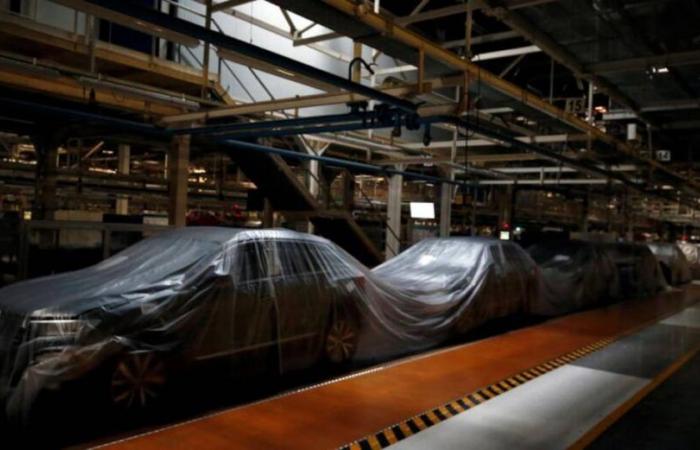Investors in the automobile sector are betting strong for more unexpected turns from Donald Trump. Volkswagen, Stellantis and Mercedes-Benz have greatly eluded the question of how much damage the tariffs are caused. Although these can negatively affect benefits and sales, valuations do not reflect the worst.
It has been more than a month since the president of the United States announced tariffs of up to 25% on imports of cars and parts to their country, in order to force the return of vehicle production. However, the companies themselves are not yet sure of what all this means. On Wednesday, Volkswagen reiterated their financial forecasts, but noted that they did not include tariffs, while Mercedes and Stellantis withdrew their forecasts in practice. However, the German group warned of “significant impacts.”
Normally, uncertainty worries investors. However, these have also been cautious when it comes to discounting an impact too large. It is true that the actions of car manufacturers have fallen since the announcement of tariffs on March 26, but not uniformly. While Stellantis has dropped more than 20%, Volkswagen’s shares have risen. They have not had a worse performance than Renault’s, which almost does not have exposure to American tariffs. As of Tuesday, the sector quoted on average to 7 times the benefits, or 5 times if Porsche is excluded, which is more valued. This is in line with its two -year means, we calculate.
Although it is true that analysts have begun to reduce their benefits forecasts, do not foresee deep declines. On average, Volkswagen, Stellantis, BMW, Mercedes and Porsche are expected to register a fall in the benefits per action of only 12% with respect to 2024. In the worst case planned by Morgan Stanley analysts, the prolongation of 25% tariff Minimum of the Covid era. That implies a much more pronounced fall of the benefit per year -on -year action.
There are reasons for this apparent indifference. Self -help measures can help compensate for tariffs: Volkswagen, for example, is busy cutting costs and launching new models. And Trump himself continues to back down: on Tuesday he announced measures to limit the impact of tariffs on car manufacturers that produce pieces in the United States. It is possible that, ultimately, reduce the tax. In addition, vehicle manufacturers could mitigate part of the cost uploading prices or using American surplus capacity.
However, if Trump fails to close commercial agreements with other countries and continues to delay the application of wide range reciprocal tariffs, it is more likely that he will redouble his commitment to specific taxes for certain sectors, such as automotive. The longer uncertainty is prolonged, the greater the impact on demand, since customers will postpone their purchases and car manufacturers will paralyze production. Despite the cold blood of investors, a fall could still occur.
The authors are columnists of Reuters Breakingviews. Opinions are yours. The translation, of Carlos Gómez belowis the responsibility of Fifodies






